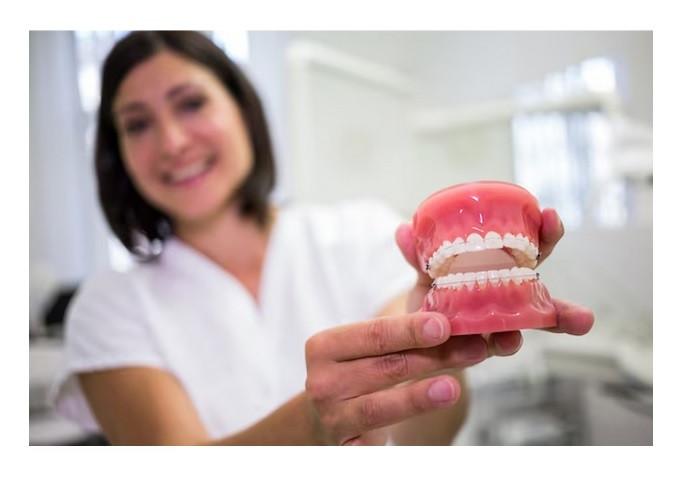Introduction:
Teeth, no matter how strong they are, can eventually deteriorate due to aging, injuries or any other factor. If you have lost most of your natural teeth for any reason, don’t worry; dentures are there as a lifesaver.
These restorative dental devices can significantly benefit your appearance and make it easier for you to eat and speak. These are the things that people usually take for granted.
Modern-day dentures are quite different from the ones your grandmother used to wear. They are much more natural looking and comfortable than they were in the past.
However, some concerns still associated with them, specifically if you don’t follow a good maintenance routine. Therefore, it is essential to properly take care of your new set of teeth to minimize the likelihood of various problems.
Here we take a look at 7 most common denture issues and how they can treated:
- Excessive Saliva Production
Hypersalivation is a common problem that results due to poorly fitted dentures. In most cases, it is a natural reaction to new dentures as your salivary glands become more active and produce excessive saliva than your mouth actually requires. But don’t worry; this issue usually disappears as your mouth gets used to dentures.
- Ill-Fitted Dentures
A new set of dentures takes some time to get adjusted, and feeling them slipping out of place when you laugh, speak, or eat quite normal.
Loose or poorly-fitted dentures can lead to pain by affecting the delicate tissues of your gums. However, dentures require your muscles to work overtime to keep them in place. Biting them down can work, but people also advised to use denture adhesives for better support.
In some cases, ill-fitted dentures are a result of certain physiological changes in your mouth; for example, the shrinkage of your jawbone.
- Trouble Eating
Sometimes, people find trouble eating with dentures as they require some practice. Dentures usually slip out of their position when people chew or bite down. Certain foods, like nuts and seeds, can also get stuck under the dentures and lead to discomfort.
To eliminate these problems, prefer easy-to-eat food items when you newly get these artificial teeth. Moreover, in order to keep your dentures stable, make sure to chew your food simultaneously with both sides of your mouth.
- Irritation In the Gums or Mouth
If the dentures do not fit properly, they can become a reason for extreme irritation in the gums. When dentures get loosened after a few months of use, they more likely to affect the gums. If you continue feeling pain or irritation, then seek dental professional help as soon as possible.
5. Jaw Disorders
Dentures can also lead to TMJ disorders. If your dentures not properly aligned, your jaw muscles will spend significant time in positioning themselves. As a result, it will exert too much pressure or strain on your TMJ, causing discomfort and irritation. In order to avoid all these problems, your dentures should ideally craft to provide you with the best and optimal fit.
Moreover, teeth play a significant role in maintaining proper jaw alignment, and when dentures taken off while sleeping, your mouth will leave with unnecessary space. It can affect the positioning of your jaw and result in TMD and bruxism.
- Cleaning Problems
Do you know that cleaning your dentures is as necessary as your natural teeth? Food debris adheres to dentures in the same way it sticks to natural teeth and forms a sticky film of germs.
When these bacteria left to fester in the mouth for longer periods, it, as a result, gives rise to severe oral complications. Therefore, not cleaning your dentures regularly can put you at higher risk for gum diseases and bad breath. That’s why make sure to clean your dentures daily and pick soft-bristled toothbrush bristles to help stimulate your gums.
In order to brush your dentures, you need to take them off. Try to be extra careful while removing them. If you are not careful, you can drop your new set of dentures. This could result in breaks, chips, or other damage. In order to protect them, try to lay a towel at the bottom of your sink to cushion the dentures if they fall.
- Strange Facial Expressions
Sometimes, patients also exhibit strange or unwanted facial expressions after getting their dentures. This is because facial movements generally change when the lips and muscles realign around the artificial teeth. However, this is a temporary problem that fades away as people adjust to their new dentures.
Tips To Follow After Getting Dentures
People are likely to make some adjustments to their dentures as their jawbone settles and their gums heal. If you feel consistent discomfort after the placement of these prosthetic teeth, seek professional dental help. Your dentist will make all the necessary adjustments to make sure you are provided with the greatest level of comfort.
People also advised to avoid eating sticky, hard, crunchy, or spicy food items while their mouth still sore or in the healing process. To get used to the feeling of dentures, you should also avoid rushing and pay attention to the eating process to prevent accidents.
By taking all these precautionary measures, you can prolong your dentures’ longevity. However, if you continue having problems, schedule an appointment with your orthodontist. Dentists make sure that your dentures adjusted properly so they fit comfortably and restore your oral functionality.
FAQ’s:
How Long Does the New Set of Dentures Take to Adjust?
New dentures can take anywhere from a few weeks to a month to settle properly. It is not unusual to experience some pain or tenderness during this period. However, by following the above-mentioned tips, you can minimize the likelihood of discomfort associated with dentures.
What Is the Biggest Problem with Dentures?
Chewing or speaking difficulties are the most common concerns of patients after getting these artificial dental devices. It takes a lot of practice to eat and converse with dentures, but with time, people ultimately get used to them.


